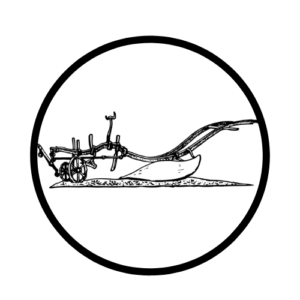Oddly enough my mind turned to Charles Spurgeon this afternoon as I was winding down and preparing for a couple of weeks vacation. “Spurgeon?”, you ask! “I thought all of those Puritan-like preachers were too hard-core for vacation?!”
Spurgeon worked hard. He recognized that now is the time devoted primarily to working in service to the Lord and that heaven is the time for the Christian to rest and enjoy the fruits of his labour in the Lord, which are never in vain (1 Cor 15:58). The famous preacher had a weekly schedule that no pastor would envy. It certainly appears that the Lord gave him extraordinarily enlarged capacities. Yet even so, Spurgeon recognized the value and necessity of retiring from his regular work for a season of rest and recreation. In other words, Spurgeon didn’t equate vacation or time-off with squandering the Lord’s time.
Regarding exercise and enjoying the great outdoors, Spurgeon wrote this:
“He who forgets the humming of the bees among the heather, the cooing of the wood-pigeons in the forest, the song of birds in the woods, the rippling of rills among the rushes, and the sighing of the wind among the pines, needs not wonder if his heart forgets to sing and his soul grows heavy. A day’s breathing of fresh air upon the hills, or a few hours, ramble in the beech woods’ umbrageous calm, would sweep the cobwebs out of the brain of scores of our toiling ministers who are now but half alive. A mouthful of sea air, or a stiff walk in the wind’s face, would not give grace to the soul, but it would yield oxygen to the body, which is next best” (Lectures to My Students, 158).
He was also clear with his students that trying to maintain a break-neck pace without reprieve is neither possible nor godly:
“The bow cannot be always bent without fear of breaking. Repose is as needed to the mind as sleep to the body. Our days of worship (which were, in the Old Testament, sabbaths) are our days of toil, and if we do not rest upon some other day, we shall break down. Even the earth must lie fallow and have her sabbaths; and so must we; hence the wisdom and compassion of our Lord, when He said to His disciples that they should go “apart into a desert place, and rest a while….Rest time is not waste time. It is economy to gather fresh strength. Look at the mower in the summer’s day, with so much to cut down ere the sun sets. He pauses in his labour – is he a sluggard?…Even thus a little pause prepares the mind for greater service in the good cause….It is wisdom to take occasional furlough. In the long run, we shall do more by sometimes doing less….Let no tender conscience doubt the lawfulness of going out of harness for a while, but learn from the experience of others the necessity and duty of taking timely rest” (Lectures to My Students 160-161).
Good theology undergirds recreation and rest. As humans, we are composed of both a body and soul. Christ shed his blood for the whole man (1 Cor 6:20), and therefore he owns the material and immaterial elements of his people. One way to “glorify God with your body” is to accept the limitations and demands of your humanity, including the need to take your foot off the pedal every once in a while. Speaking about this psycho-somatic unity, David Murray writes, “The interconnectivity of the physical and the spiritual means that the health of the body affects the health of the soul and vice versa, and it’s not always easy to figure out the contribution of each to our problems!” (Reset, 36).
In addition to daily communing with God in prayer and the Word, get some fresh air in your lungs. Take your kids on a bike ride or go swimming with them. Turn off the screen and put the emails and phone-calls aside. Detox from the regular rhythms and routines of your life for the sake of a long, effective, persevering ministry. I remember hearing John Piper give this good advice to pastors, but it applies to all Christians: find a pace to finish the race.
Spurgeon knew how to work hard, but he also understood the theological moorings and grace of rest and recreation. If vacation and days off are used well it helps to refuel us for more effective ministry in our homes, at church, and at work in the long run. It also reminds us that we are finite creatures who owe our body and soul to our Creator and Redeemer. More important than Spurgeon’s words, though, are those spelled out for us by Christ himself – and no man dare accuse him of laziness – who invites his disciples to come with him “apart into a desert place, and rest a while” (Mark 6:31).

